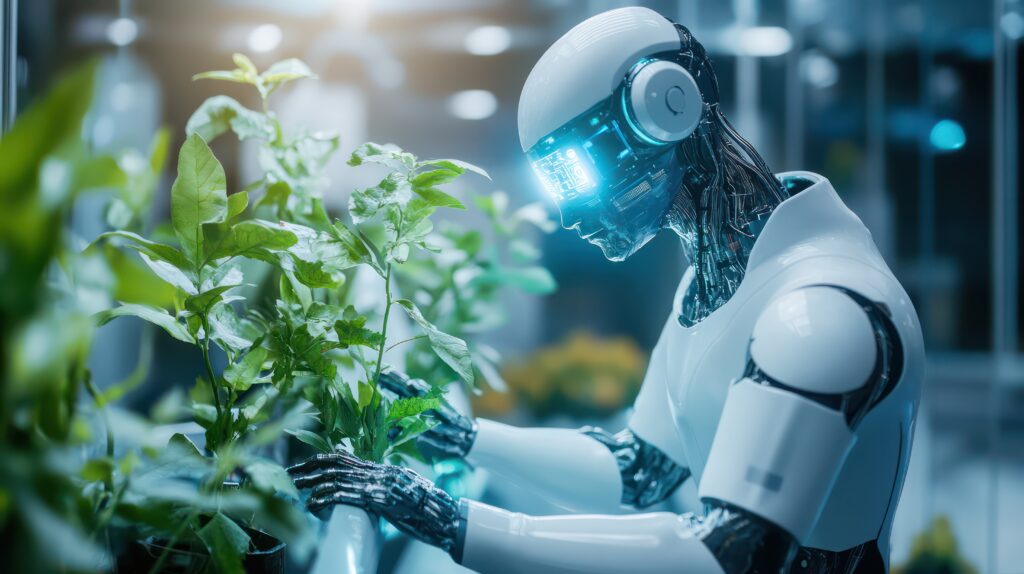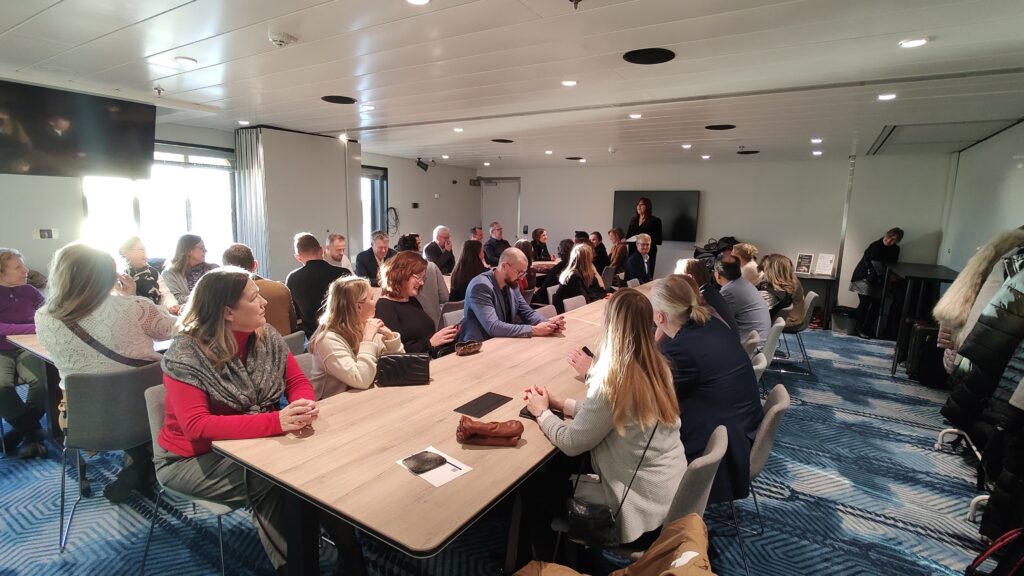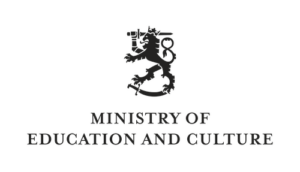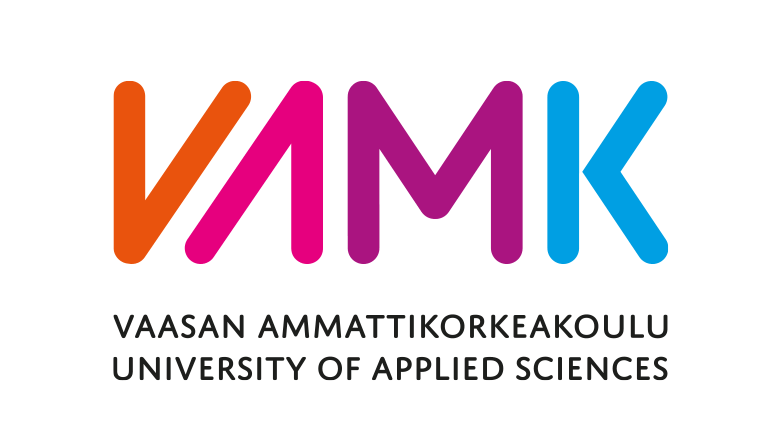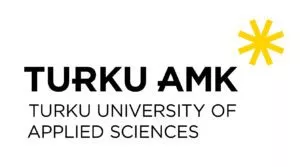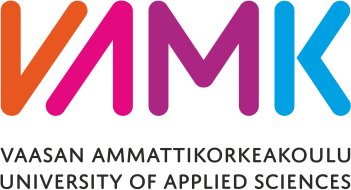Finland thrives of the West Coast
Vaasa University of Applied Sciences, Turku University of Applied Sciences, Centria University of Applied Sciences, Satakunta University of Applied Sciences, and Novia University of Applied Sciences have, since the beginning of 2023, committed to close West Coast cooperation facilitated by the Ministry of Education and Culture. Vaasa University of Applied Sciences coordinates the West Coast cooperation. The universities of applied sciences on the West Coast form a clear center of expertise, focusing on industry, energy, logistics, health and well-being, and security of supply. In the initial phase of cooperation, the focus is particularly on collaboration revolving around digital manufacturing technology and robotics, as well as clean energy solutions.
The thematic priorities have emerged from the regions’ smart specialisation strategies, the needs of the regions and their industries, and the strategic priorities of the universities of applied sciences. The strengths and expertise of the West Coast universities complement each other. The needs of industry and the labor market are strategically shared in the region. Thematic collaboration aims to take a proactive approach and promote multidisciplinary cooperation to address systemic challenges.
The universities of applied sciences on the West Coast collectively aim to ensure new workforce for the regions’ companies and labor market, maintain the skills and employability of the current workforce, provide R&D capacity for pilots, experiments, and development, as well as innovation and validation for future investments.
The universities of applied sciences participating in the West Coast program aim to collectively ensure that companies and the labor market in the regions continue to find skilled experts for their needs and thus contribute to increasing international competitiveness. Deepening research and education cooperation enhances the attractiveness of the entire region and facilitates attracting international investments and talent to the area.
Meeting the needs of industry and the workforce
Within the framework of West Coast cooperation, collaboration is deepened in the following areas: digital manufacturing technology, robotics, clean energy solutions, well-being, logistics, and security of supply. The aim is to be pioneers in these fields and support future technological development.
Ensuring a skilled workforce
The universities of applied sciences on the West Coast play a central role as producers of skilled workforce. Through collaboration, it is ensured that companies and the labor market in the regions continue to find skilled experts for their needs and can thus invest in increasing international competitiveness.
Intensifying research and education cooperation
Universities of applied sciences are excellent partners for companies in research, development, and innovation projects, and they provide for example support for companies’ investment decisions. Deepening cooperation enables more impactful RDI projects, a diverse range of educational offerings, and the shared use of research infrastructures.
West Coast Universities of Applied Sciences Cooperation Program
The West Coast Program 2023–2025 of Vaasa University of Applied Sciences (VUAS), Turku University of Applied Sciences (TUAS), Satakunta University of Applied Sciences (SAMK), Centria University of Applied Sciences, and Novia University of Applied Sciences is built around two current themes: digital manufacturing technology and robotics, and clean energy solutions. These thematic priorities have emerged from the regions’ smart specialization strategies, the needs of local industries, and the strategic focuses of the local universities of applied sciences. The long-term goal of this cooperation is to strengthen the knowledge base of the West Coast and thus support regional development, as well as to enhance proactive approaches and multidisciplinary collaboration to solve systemic challenges. Close cooperation on the West Coast enables the implementation of more impactful RDI projects, the provision of high-quality joint training programs, and addresses the region’s skills shortage.
The strategic needs of industries and the labor market are common across the West Coast region, and collaboration has naturally been in place for a long time. Additionally, the West Coast shares a long-standing and close cooperation with Sweden and Norway. The green transition, skills shortage, and changes in the security environment due to the energy crisis further emphasize the importance of active collaboration between Finland, Sweden, and Norway; thus, the West Coast Program aims for closer cooperation with Swedish and Norwegian partners as well.
Vaasa University of Applied Sciences (VUAS), Turku University of Applied Sciences (TUAS), Satakunta University of Applied Sciences (SAMK), Centria University of Applied Sciences, and Novia University of Applied Sciences collectively known as the West Coast Universities of Applied Sciences, form a clear competence cluster with focus areas in industry, energy, logistics, health and well-being, and security of supply. In the initial phase of the collaboration, special emphasis is placed on cooperation centered around digital manufacturing technology and robotics, as well as clean energy solutions. Since the beginning of 2023, these universities have committed to a close West Coast Program, enabled and supported by the Ministry of Education and Culture.
The West Coast Program 2023–2025 of VAMK, TUAS, SAMK, Centria and Novia is built around two current themes: digital manufacturing technology and robotics, and clean energy solutions. These thematic priorities have emerged from the regions’ smart specialization strategies, the needs of local industries, and the strategic focuses of the local universities of applied sciences. The long-term goal of this cooperation is to strengthen the knowledge base of the West Coast and thus support regional development, as well as to enhance proactive approaches and multidisciplinary collaboration to solve systemic challenges. Close cooperation on the West Coast enables the implementation of more impactful RDI projects, the provision of high-quality joint training programs, and addresses the region’s skills shortage.
The strategic needs of industries and the labor market are common across the West Coast region, and collaboration has naturally been in place for a long time. In addition to the current themes, cooperation is being strengthened in well-being, security of supply, and logistics. New business models are naturally integrated into the overall framework. Moreover, the West Coast shares a long-standing and close cooperation with Sweden and Norway. The green transition, skills shortage, and changes in the security environment due to the energy crisis further emphasize the importance of active collaboration between Finland, Sweden, and Norway; thus, the West Coast Program aims for closer cooperation with Swedish and Norwegian partners as well.
The Growing Importance of the West Coast
The significance of the West Coast for Finland’s competitiveness, vitality, and well-being is critical. For example, one in four industrial establishments with more than ten employees is located on the West Coast. Additionally, the region produces one-fifth of the country’s GDP. The West Coast accounts for over one-third of Finland’s goods exports and is among the national leaders in high value-added products. The substantial number of high-tech export companies in the West Coast makes the area significant for national security of supply and a fertile ground for new innovations and production technologies. The region clearly has an appeal: over 70% of graduates from the West Coast universities of applied sciences stay in the area for work. Currently, the share of RDI expenditures is already a quarter of the national total. Moreover, the region faces common challenges such as an aging population, labor shortages, and long distances.
Skilled Workforce and Diverse Support for Companies’ RDI Activities
The West Coast universities of applied sciences play a key role in producing a skilled workforce. The universities participating in the West Coast Program aim to ensure that companies and the labor market in the region continue to find the skilled workforce they need and can thus invest in increasing international competitiveness. This requires increasingly tailored educational programs, bolder RDI initiatives, and open co-development.
Intensifying research and educational collaboration enhances the overall attractiveness of the region and facilitates the recruitment of international talent. Additionally, universities of applied sciences are crucial in finding the best ways to develop the skills of the current workforce, improve workplace well-being, and increase employees’ readiness for innovation. Universities can also partner with companies in RDI projects, experiments, and innovations, providing, for example, validation for future investments.
Deepening Collaboration Means More Impactful RDI Activities
Southwest Finland, Ostrobothnia, Satakunta, and Central Ostrobothnia boast nationally significant expertise in digital manufacturing technology, automation, and robotics within the metal, construction, process, and bio-pharmaceutical industries. Deepening collaboration enables, in the long term, the sharing of research infrastructures and educational content, joint teaching, and more impactful RDI projects. Closer cooperation, for example, in the remote use of research infrastructure, also promotes the green transition and sustainable development.
The West Coast Program will create conditions for well-being throughout Finland through increased RDI funding, new innovations, and the development of expertise. The future is built on collaboration – Go West-Coast.

Digital manufacturing technology and robotics
In the West Coast region, strong expertise in digital manufacturing technology and robotics has profoundly transformed the industry.
The region’s high-tech export companies are pioneers, focusing on new innovations and production technologies. Additionally, a cluster called RoboCoast, which brings together around a hundred companies, is a significant asset in the region’s development. This cluster supports the West Coast’s position as an international center of expertise in the fields of robotics, IoT, artificial intelligence, and automation. Thanks to these technologies, the region can achieve more efficient production, more precise quality control, and free up workforce from routine tasks.
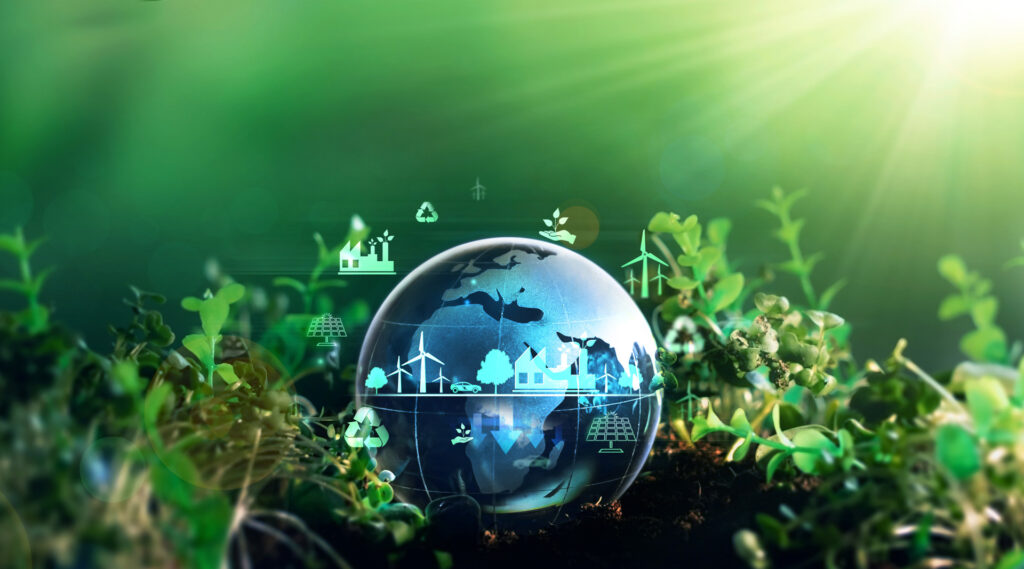
Clean energy solutions
Clean energy solutions are a key part of the global effort to move towards more sustainable and environmentally friendly energy production.
In the West Coast region, there is a strong focus on clean energy solutions, and the area has a strong position in both battery and process chemistry as well as low-carbon energy storage. The region is home to Finland’s most significant cluster of metals and metal chemicals needed for electrification and battery manufacturing. In the GigaVaasa area, several projects crucial for the future are planned, such as cathode and anode material factories, which support the growth of the battery industry.
The Growing Importance of the West Coast
The significance of the West Coast for Finland’s competitiveness, vitality, and well-being is critical. For example, one in four industrial establishments with more than ten employees is located on the West Coast. Additionally, the region produces one-fifth of the country’s GDP. The West Coast accounts for over one-third of Finland’s goods exports and is among the national leaders in high value-added products. The substantial number of high-tech export companies in the West Coast makes the area significant for national security of supply and a fertile ground for new innovations and production technologies.
The region clearly has an appeal: over 70% of graduates from the West Coast universities of applied sciences stay in the area for work. Currently, the share of RDI expenditures is already a quarter of the national total. Moreover, the region faces common challenges such as an aging population, labor shortages, and long distances.
Source: Tilastokeskus 2022
Land area
In 2021, the land area of the 30 km West Coast zone was just over one-tenth of the entire country’s area.
Industrial sites
Approximately one in four of the country’s production and industrial establishments with more than 10 employees in 2000 was located within the 30 km West Coast zone.
Goods Exports
In 2021, the share of goods exports from the provinces within the 30 km West Coast zone was over one-third of the entire country’s goods exports.
Population
In 2021, approximately 1.2 million residents, or over one-fifth of the entire country’s population, lived within the 30 km West Coast zone.
GPD
In 2019, the GDP share of the regions within the 30 km West Coast zone was approximately one-fifth of the entire country’s GDP share.
R&D expenditures
In 2021, the share of R&D expenditures from the provinces within the 30 km West Coast zone was slightly under one-quarter of the entire country’s R&D expenditures.
West Coast Cooperation and the goals of Finland–Sweden collaboration
The West Coast Cooperation network consists of five universities of applied sciences: Vaasa University of Applied Sciences (VAMK), Turku UAS, Satakunta UAS (SAMK), Centria UAS, and Yrkeshögskolan Novia. The cooperation is supported by the Ministry of Education and Culture and is based on the regions’ smart specialisation strategies as well as the needs of local industries. The programme focuses on key themes such as the energy transition, robotics, digitalisation, logistics, security of supply, and wellbeing. In these areas, the West Coast programme aims to strengthen RDI activities, expertise, and competitiveness.
Cross-border cooperation with Sweden is a central part of the programme. The goal is to build closer partnerships between regions such as Umeå and Vaasa, develop joint projects in digitalisation, logistics, and education, and reinforce Finland–Sweden–Norway collaboration to address challenges related to the energy transition, skills shortages, and shifts in the security environment.
The long-term vision is broad, multidisciplinary cooperation to tackle systemic challenges. The West Coast region generates one-fifth of Finland’s GDP and over one-third of its goods exports, making this cooperation vital for the country’s overall competitiveness. Collaboration with Sweden supports regional development, investments, and educational initiatives, while also strengthening security and supply-chain resilience in the context of NATO membership.
With this background, the West Coast Cooperation universities applied to participate in Hanaholmen’s 50th anniversary discussion series, which highlights dialogue and cooperation between Finland and Sweden. For half a century, Hanaholmen has served as a bridge-builder between the two countries, and the anniversary year features seminars, cultural events, and discussions on shared future challenges.
Contact our network
Join the cooperation and make an impact in your regions future with us.

Marja-Riitta Vest
Director, RDI and Business,
Steering committee,
VUAS
marja-riitta.vest@vamk.fi
+358 207 663 500

Cimmo Nurmi
Office Vice President for Research Operating unit,
Steering committee,
Samk
+358 44 710 3371

Johanna Krappe
Head of RDI and Global Engagement,
Steering committee,
Turku AMK
johanna.krappe@tuas.fi
+358 40 3550 529

Loviisa Mäki-Julku
Specialist, Open Science and RDI Communications,
VUAS
News
“It is wonderful to see how the West Coast universities of applied sciences are combining their strengths and taking education and research collaboration to a new level by leveraging regional strengths and addressing the needs of businesses. I am pleased to support a project like this.”
– Minister of Science and Culture Petri Honkonen, March 2023.






